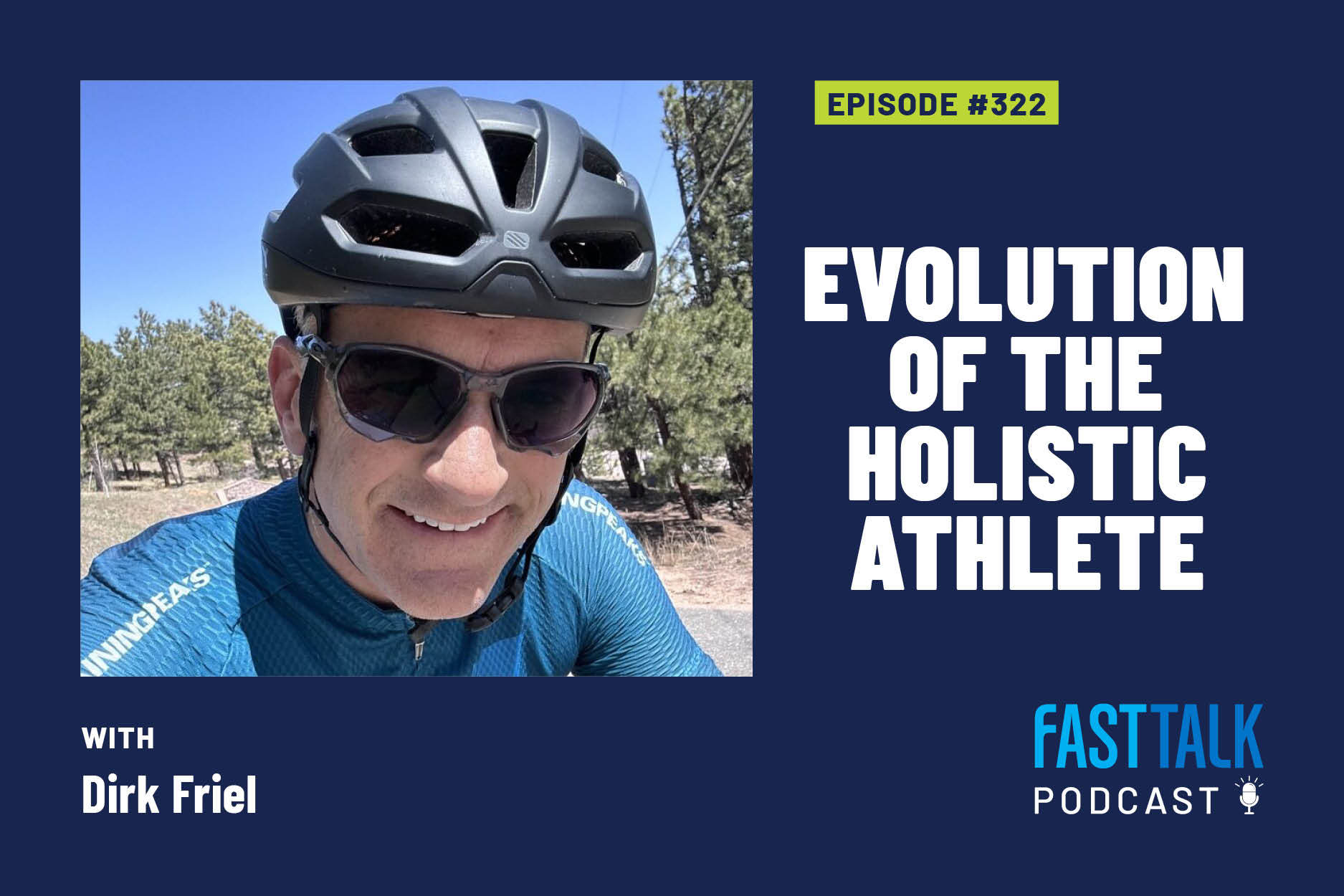Let’s face it, training was a lot simpler 30 or 40 years ago. You had a plan, you executed the plan, training was done. It was that easy. But if it’s that simple, then why haven’t we gone back to those glory days?
Perhaps one reason is that while the training hasn’t changed that much, what athletes are accomplishing now was unheard of back then. At the top level, athletes are competitive at ages that used to be well past the retirement years, World Tour riders are racing from February through October, and they are peaking many times through the year—not just once or twice.
It is highly unlikely that this dramatic shift is the result of a specific workout. Our guest today, TrainingPeaks founder Dirk Friel, believes it’s due to a shift in focus from the training plan a holistic athlete approach: their sleep, what they eat, their mental state, and a host of other factors that all have an impact on the athlete as a whole.
While none of these factors may show up as earth shattering in a research study, put together, they allow athletes to do now what was considered nearly impossible 30 years ago. And most importantly, this isn’t just the pros—considering the whole athlete is something that will benefit anyone at any level.
In this episode, we define the holistic athlete, the factors that influence their performance, why having a network of experts is important for all of us, and how training software is beginning to take the whole athlete into consideration.
So find a comfy seat—and everything else you need to enjoy the episode as a whole—and let’s make you fast!
RELATED: How to Build a Better Athlete
REFERENCES
(Haugen, 2021; Mageau & Vallerand, 2010; Passfield, Hopker, Jobson, Friel, & Zabala, 2016; Peng, Zhang, Zhao, Fang, & Shao, 2020; Saw, Main, & Gastin, 2016; Shei, Holder, Oumsang, Paris, & Paris, 2022; St-Onge & Zuraikat, 2019; Ye, Feng, Huang, & Bian, 2020)
Haugen, T. (2021). Best-Practice Coaches: An Untapped Resource in Sport-Science Research. International Journal of Sports Physiology and Performance, 16(9), 1215–1216. Retrieved from https://doi.org/10.1123/ijspp.2021-0277
Mageau, G. A., & Vallerand, R. J. (2010). The coach–athlete relationship: a motivational model. Journal of Sports Sciences, 21(11), 883–904. Retrieved from https://doi.org/10.1080/0264041031000140374
Passfield, L., Hopker, J., Jobson, S., Friel, D., & Zabala, M. (2016). Knowledge is power: Issues of measuring training and performance in cycling. Journal of Sports Sciences, 35(14), 1426–1434. Retrieved from https://doi.org/10.1080/02640414.2016.1215504
Peng, J., Zhang, J., Zhao, L., Fang, P., & Shao, Y. (2020). Coach–Athlete Attachment and the Subjective Well-Being of Athletes: A Multiple-Mediation Model Analysis. International Journal of Environmental Research and Public Health, 17(13), 4675. Retrieved from https://doi.org/10.3390/ijerph17134675
Saw, A. E., Main, L. C., & Gastin, P. B. (2016). Monitoring the athlete training response: subjective self-reported measures trump commonly used objective measures: a systematic review. British Journal of Sports Medicine, 50(5), 281. Retrieved from https://doi.org/10.1136/bjsports-2015-094758
Shei, R.-J., Holder, I. G., Oumsang, A. S., Paris, B. A., & Paris, H. L. (2022). Wearable activity trackers–advanced technology or advanced marketing? European Journal of Applied Physiology, 122(9), 1975–1990. Retrieved from https://doi.org/10.1007/s00421-022-04951-1
St-Onge, M.-P., & Zuraikat, F. M. (2019). Reciprocal Roles of Sleep and Diet in Cardiovascular Health: a Review of Recent Evidence and a Potential Mechanism. Current Atherosclerosis Reports, 21(3), 11. Retrieved from https://doi.org/10.1007/s11883-019-0772-z
Ye, S., Feng, S., Huang, L., & Bian, S. (2020). Recent Progress in Wearable Biosensors: From Healthcare Monitoring to Sports Analytics. Biosensors, 10(12), 205. Retrieved from https://doi.org/10.3390/bios10120205






